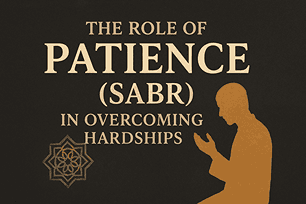Dua and Islamic Remedies for Controlling Lustful Thoughts

In the fast-paced modern world, believers are constantly surrounded by temptations. Lustful thoughts can creep into the heart and mind, sometimes without intention, and if left unchecked, they can become a major spiritual obstacle. Islamic studies offers comprehensive guidance on purifying the soul, controlling desires, and maintaining chastity. Islam does not deny natural human instincts, but it emphasizes channeling them in lawful ways while protecting one’s heart from sinful inclinations. This article explores effective duas (supplications) and Islamic remedies that can help in controlling lustful thoughts.
Understanding the Nature of Lustful Thoughts
Lustful thoughts are not always a sign of moral failure. Islam acknowledges that human beings are created with natural desires. However, the challenge lies in resisting sinful inclinations and not allowing them to lead to forbidden actions. The Quran says:
“Indeed, Allah loves those who constantly repent and loves those who purify themselves.” (Quran 2:222)
This verse shows that believers are expected to fight against inner temptations and continually strive for purification. The Hadith literature also highlights the concept of jihad al-nafs (struggle against the self), which includes resisting inappropriate sexual desires.
Powerful Duas to Seek Allah’s Help
When dealing with any spiritual weakness, the first step is to turn to Allah in sincere dua. The heart is strengthened through remembrance, and Allah is the ultimate source of protection from sinful thoughts. Some beneficial supplications include:
Seeking refuge from Shaytan:
“أعوذ بالله من الشيطان الرجيم”
“A‘udhu billahi min ash-shaytan ir-rajim”
(“I seek refuge with Allah from the accursed devil.”)Asking for purification:
“Allahumma tahhir qalbi wa hassin farji”
(“O Allah, purify my heart and protect my chastity.”)Dua for steadfastness:
“Ya Muqallibal-qulub thabbit qalbi ‘ala deenik”
(“O Turner of hearts, make my heart firm upon Your religion.”)
Consistently making these duas can increase spiritual resilience and reduce the frequency and intensity of lustful thoughts.
Islamic Remedies for Controlling Lustful Thoughts
Along with supplication, practical steps are also necessary. Islam emphasizes combining spiritual remedies with behavioral actions to achieve long-term control.
1. Lowering the Gaze
Lowering the gaze is one of the primary methods taught in the Quran to prevent lustful feelings from arising. Allah says:
“Tell the believing men to lower their gaze and guard their private parts. That is purer for them.” (Quran 24:30)
Avoiding visual triggers—such as inappropriate media content or environments—helps break the cycle of temptation before it begins.
2. Fasting as a Shield
The Prophet Muhammad (peace be upon him) advised unmarried young men who struggle with sexual desires to fast regularly. Fasting reduces physical energy and increases spiritual consciousness, helping a person control impulses. It also instills self-discipline and mindfulness, which weakens the influence of lust.
3. Keeping Busy with Worship and Productive Activities
Idleness often gives space to sinful thoughts. Filling time with worship, Quran recitation, study, exercise, or skill-building keeps the mind occupied. Developing consistent routines helps redirect mental energy from desires to beneficial actions.
4. Avoiding Isolation and Tempting Situations
Being alone for long periods can make one more vulnerable to lustful thoughts. Islam encourages companionship with righteous people, attending the mosque, and engaging in community activities. Surrounding oneself with good company promotes positive behavior and accountability.
5. Remembering Death and the Hereafter
Reflecting on accountability before Allah can immediately cool down the intensity of sinful desires. Remembering that every thought and action is recorded creates mindfulness and increases the fear of Allah (taqwa). The Quran says:
“Indeed, those who fear Allah when an impulse from Shaytan touches them—they remember [Him] and at once they have insight.” (Quran 7:201)
Strengthening Faith Through Knowledge
Ignorance often allows desires to dominate. Studying Islamic teachings on modesty, chastity, and the rewards of patience strengthens one’s motivation to resist temptation. Learning about the lives of pious predecessors (salaf) who overcame desires through worship and discipline can inspire similar behavior.
Regular attendance in Islamic study circles, reading books on purification of the soul, and seeking guidance from scholars are practical steps to gain the knowledge needed to overcome this inner battle.
When Marriage Becomes Necessary
If lustful thoughts become overwhelming despite all spiritual efforts, Islam provides a lawful outlet through marriage. The Prophet Muhammad (peace be upon him) said:
“Marriage is a protection (shield). So let those who cannot afford it fast, for fasting will be a shield for them.” (Sahih al-Bukhari)
Marriage channels natural desires in a halal way, bringing emotional comfort, stability, and protection from sin.
Conclusion
Controlling lustful thoughts is a lifelong spiritual struggle that requires both internal effort and external action. Through sincere dua, regular worship, fasting, avoiding temptations, and seeking Islamic knowledge, believers can gradually overcome these challenges. Remember that Allah rewards every sincere effort, even if one stumbles along the way. Consistency and patience are key—those who persevere will find their hearts purified, their faith strengthened, and their souls at peace.













Post Comment